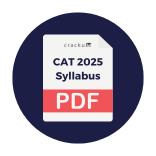Read the situation below and answer the 3 associated questions:
A Multinational Company (MNC) sources pristine natural spring water from Bori, a village in Satpura mountains. The unprocessed natural spring water is directly bottled by the MNC. The company brands it as “Natural Spring Water” and sells at 50% premium vis-a-vis other brands that sell processed water.
The local panchayat, under the Panchayati Raj Act, 1992 controls the spring water usage. Hence, the company signed a 30-year contract with the panchayat for exclusive access to the spring water for business purposes. This contract contributes 50% to the panchayat’s revenues besides providing 250 jobs in the panchayat. The spring also meets domestic and agricultural needs of the people of Bori and the surrounding villages.
The MNC is concerned about chemical contamination of the natural spring water due to the agricultural runoff with pesticides and fertilizers. The MNC is looking for a sustainable solution to this contamination.
Which of the following courses of action will BEST solve the issue?
Option A might lead to tensions between the Panchayat and the MNC as the spring is the primary water source for the villagers, and they might not be ready to switch to an alternate source.
Option B will lead to the brand losing its uniqueness, and they won't be able to charge the same price for the water, leading to a loss in revenue.
Option C will lead to a substantial financial undertaking as the MNC will have to sign new deals and set up a new bottling plant.
Option E will lead to tensions between the farmers and the MNC as they will lose their primary source of income.
Option D is the best choice as it is a win-win situation for both parties.
Hence, the answer is option D.
Create a FREE account and get:
- All Quant Formulas and shortcuts PDF
- 15 XAT previous papers with solutions PDF
- XAT Trial Classes for FREE




